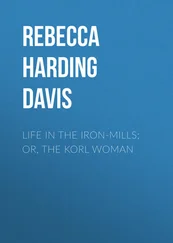Mark Mills - The Savage Garden
Здесь есть возможность читать онлайн «Mark Mills - The Savage Garden» — ознакомительный отрывок электронной книги совершенно бесплатно, а после прочтения отрывка купить полную версию. В некоторых случаях можно слушать аудио, скачать через торрент в формате fb2 и присутствует краткое содержание. Жанр: Старинная литература, на английском языке. Описание произведения, (предисловие) а так же отзывы посетителей доступны на портале библиотеки ЛибКат.
- Название:The Savage Garden
- Автор:
- Жанр:
- Год:неизвестен
- ISBN:нет данных
- Рейтинг книги:4 / 5. Голосов: 1
-
Избранное:Добавить в избранное
- Отзывы:
-
Ваша оценка:
- 80
- 1
- 2
- 3
- 4
- 5
The Savage Garden: краткое содержание, описание и аннотация
Предлагаем к чтению аннотацию, описание, краткое содержание или предисловие (зависит от того, что написал сам автор книги «The Savage Garden»). Если вы не нашли необходимую информацию о книге — напишите в комментариях, мы постараемся отыскать её.
The Savage Garden — читать онлайн ознакомительный отрывок
Ниже представлен текст книги, разбитый по страницам. Система сохранения места последней прочитанной страницы, позволяет с удобством читать онлайн бесплатно книгу «The Savage Garden», без необходимости каждый раз заново искать на чём Вы остановились. Поставьте закладку, и сможете в любой момент перейти на страницу, на которой закончили чтение.
Интервал:
Закладка:
"Passive."
"Yes, passive."
"You should meet my ex-girlfriend, you'd have a lot to talk about."
She laughed, a deep and husky laugh. Adam wondered if she was naturally blond. It was hard to tell from her complexion.
"Ah, see," she exclaimed. "You are doing it now."
"What?"
"Watching. What were you thinking?"
"Nothing."
"Liar."
"Okay. I was wondering if your blond hair is natural."
Chiara leaned across the desk and stubbed out her cigarette in the ashtray. "I could prove it to you," she said, "but I don't know you well enough."
There was something so matter-of-fact in her delivery that it stripped the statement of all flirtation.
This slightly bizarre exchange didn't color the rest of their conversation, even if the image it conjured up never quite left Adam's head. Chiara talked about a trip she had once made to Scotland. She liked the Scottish, she said, they were hill people, like the Italians. Hill Scots people were different. Hills had names, they had stories attached to them. Peaks and passes had been defended, battles had been fought in their valleys. You couldn't ignore hills, they seeped into your marrow, they became part of you.
Adam put forward a corresponding argument for the flat fen- lands of Cambridgeshire, his father's childhood home, but Chiara refused to allow anything to tarnish her theory, tossing his case out of court.
She told him about the rugged countryside near Perugia, where she'd grown up, and where she still had a house. She told him about the other houses they owned, the one in Florence and the one by the sea.
"And how do you feel about moving here?" Adam asked, nudging the conversation his way.
"It is what Maurizio wants, and it is not so far from town."
"You have your doubts?" "I have never felt happy here."
"It's a beautiful place."
"Yes, I know, of course."
"Maybe you'll feel better about it when you've redone the top floor," remarked Adam.
"Maybe."
"Maria says you have plans."
"Of course. It's not natural." Her eyes flicked toward the ceiling. "Do you think it's natural?"
"No."
"It is like . . ."
"What?"
"E come fossesempre vivo." It's like he's still alive. "It is not natural. I don't care what Francesca thinks."
"Apparently it was her husband's wish."
"Pah!"
It was a surprisingly eloquent utterance, as was the gesture that accompanied it—a dismissive flick of the hand.
"Benedetto was obsessed, everyone said it. She said it. Then when he died, she did nothing."
"Maybe he asked her not to."
"That's what she says; before he died he made her promise. But he did not make Maurizio promise."
"Have you ever been up there?"
"Only one time. When it happened."
"You were here when it happened?"
"We all were, in the house by the farm."
They had been celebrating, she explained, a big meal with lots of wine. Maybe a little too much wine, with hindsight—Emilio had a tendency to become belligerent when drunk. They had good cause to be happy, though. The Allies were at the gates of San
Casciano and they'd received word from the German officer in command of the villa that he intended to disregard his orders and pull back to the next German line of defense, just south of Florence.
This wasn't cowardice on his part. He knew that to make a stand at Villa Docci would quite possibly result in the destruction of a building he'd come to love. He was a good man, said Chiara, a very tall and very cultivated man from Hamburg, and it was sad that he hadn't outlived the war. She still remembered the tears in his eyes as he was leaving, when Emilio told him that he would always be a welcome guest in their home once the hostilities were over.
They had survived the German occupation and were all in high spirits when the sound of gunfire shattered the silence of the night. They knew that a small detail of men had been left behind to finalize the withdrawal from the villa, and their first thought was that these soldiers had been surprised by an advance party of Allied troops. On rushing outside, however, they also heard the sounds of music and laughter coming from up at the villa.
It was Emilio's idea to go and investigate: a matter of pride to him. It was chiefly thanks to his subtle diplomacy that Villa Docci and its occupants had come through the various phases of the war unscathed. Despite what people now said—and what she herself had thought at the time—Emilio was never a Fascist, he was a pragmatist. He did whatever was required to protect his family and the estate, happy to don any mask that served this end, regardless of the damage to his reputation.
She had since discovered that on at least two occasions he had used his influence with the Fascist authorities in Florence to protect Maurizio from certain "difficulties"—problems arising from his association with underground socialism.
And just as Emilio had worked those men of importance in Florence, so he had won over the German officer sent to establish a command post at Villa Docci, sitting up late into the night with him, talking about art, literature, science and philosophy. Not a single artwork had been damaged or pillaged, not a single laborer on the estate ill-treated. It had been an entirely painless cohabitation. Then, just as it was drawing to a close, Emilio was presented with the sight of antique furniture—precious family heirlooms— being tossed from the top windows of the villa by a couple of foot soldiers.
Unfortunately, they were not men he knew well; they'd recently been assigned to Villa Docci, plucked from the hordes of German troops retreating northward. Emilio and Maurizio had burst in on the pair as they were hefting yet another piece of furniture toward the window. They were reeling drunk, laughing, and some German song was blaring from the gramophone player. Emilio took in the room—the broken mirrors, the slashed paintings and the bullet- holes in the ceiling frescoes—then he drew his pistol and fired a shot into the gramophone, killing the music. For a few stunned moments the four men in the room just stood there in the deafening silence, a frozen tableau.
Tempers quickly flared. There was much gesticulating and shouting, the words lost on Maurizio, who didn't speak German. The Germans glanced at their own pistols, abandoned nearby. Emilio ordered them to move away from their weapons. And that's when Gaetano the gardener entered the room, drawn to the villa by the rumpus.
Chiara made Adam swear never to repeat this particular detail of the story, the precise and unfortunate timing of Gaetano's arrival, because in many respects poor Gaetano was unwittingly responsible for the death of Emilio.
As Emilio turned instinctively toward the door, one of the Germans snatched up his own pistol and fired twice, hitting Emilio in the chest and the head. He crumpled to the floor, dead. Gaetano dipped back outside the room, but with nowhere to flee, Maurizio found himself staring down the barrel of the German's gun. His life was saved by the other German, who persuaded his companion not to pull the trigger. The two of them then fled.
Chiara saw the room the following day. Emilio's body had been removed, although his blood still stained the floor near the fireplace, where he had fallen. Allied soldiers arrived in the afternoon, but they seemed less concerned with what had happened than in turning up any intelligence left behind by the Germans. As soon as they were gone, Benedetto closed and locked the doors at the head of the staircase. It was a few days before he announced that the rooms would remain just as they were. He gave no explanation and he refused to discuss the matter further. With time, everyone grew to accept this unusual state of affairs. It only became an issue again when, years later, Benedetto himself died and Signora Docci announced her intention to leave the top floor sealed off.
Читать дальшеИнтервал:
Закладка:
Похожие книги на «The Savage Garden»
Представляем Вашему вниманию похожие книги на «The Savage Garden» списком для выбора. Мы отобрали схожую по названию и смыслу литературу в надежде предоставить читателям больше вариантов отыскать новые, интересные, ещё непрочитанные произведения.
Обсуждение, отзывы о книге «The Savage Garden» и просто собственные мнения читателей. Оставьте ваши комментарии, напишите, что Вы думаете о произведении, его смысле или главных героях. Укажите что конкретно понравилось, а что нет, и почему Вы так считаете.











